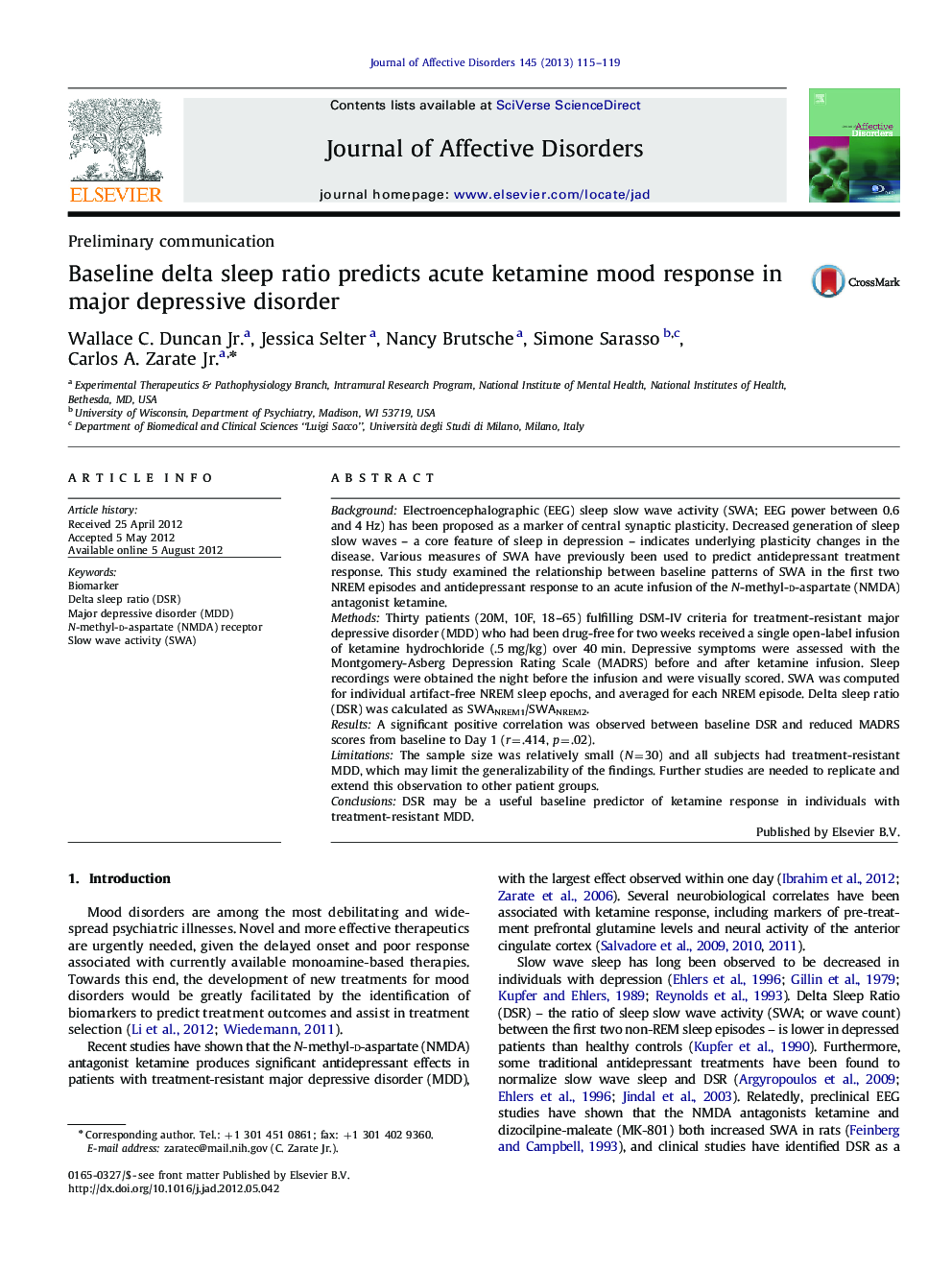| کد مقاله | کد نشریه | سال انتشار | مقاله انگلیسی | نسخه تمام متن |
|---|---|---|---|---|
| 6235034 | 1277574 | 2013 | 5 صفحه PDF | دانلود رایگان |
BackgroundElectroencephalographic (EEG) sleep slow wave activity (SWA; EEG power between 0.6 and 4Â Hz) has been proposed as a marker of central synaptic plasticity. Decreased generation of sleep slow waves - a core feature of sleep in depression - indicates underlying plasticity changes in the disease. Various measures of SWA have previously been used to predict antidepressant treatment response. This study examined the relationship between baseline patterns of SWA in the first two NREM episodes and antidepressant response to an acute infusion of the N-methyl-d-aspartate (NMDA) antagonist ketamine.MethodsThirty patients (20M, 10F, 18-65) fulfilling DSM-IV criteria for treatment-resistant major depressive disorder (MDD) who had been drug-free for two weeks received a single open-label infusion of ketamine hydrochloride (.5Â mg/kg) over 40Â min. Depressive symptoms were assessed with the Montgomery-Asberg Depression Rating Scale (MADRS) before and after ketamine infusion. Sleep recordings were obtained the night before the infusion and were visually scored. SWA was computed for individual artifact-free NREM sleep epochs, and averaged for each NREM episode. Delta sleep ratio (DSR) was calculated as SWANREM1/SWANREM2.ResultsA significant positive correlation was observed between baseline DSR and reduced MADRS scores from baseline to Day 1 (r=.414, p=.02).LimitationsThe sample size was relatively small (N=30) and all subjects had treatment-resistant MDD, which may limit the generalizability of the findings. Further studies are needed to replicate and extend this observation to other patient groups.ConclusionsDSR may be a useful baseline predictor of ketamine response in individuals with treatment-resistant MDD.
Journal: Journal of Affective Disorders - Volume 145, Issue 1, 15 February 2013, Pages 115-119
